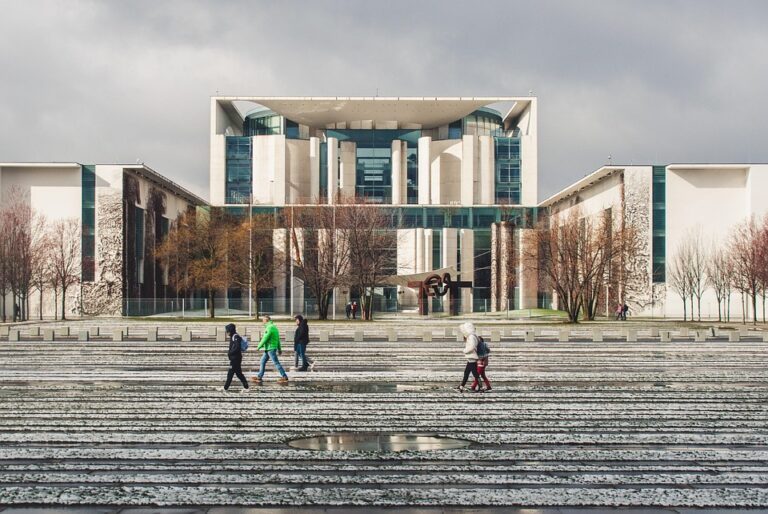The Celebrity Politician: A New Era of Governance
In recent years, the intersection between entertainment and governance has become increasingly vibrant, leading to the emergence of a new phenomenon: celebrities in politics. This trend not only influences how we view political figures but also reshapes the dynamics of electoral campaigns and governance. As social media becomes a dominant force in society, celebrities leverage their platforms to engage with influential audiences, sparking a discussion about the importance of representation and authenticity. This article explores how celebrities in politics are reshaping governance and what it means for the future of democracy.
A Shift in Public Perception
Historically, celebrities have often remained on the fringes of political discourse. However, the past decade has witnessed a dramatic shift. According to a 2020 survey conducted by the Pew Research Center, 6 out of 10 Americans believe that celebrities can positively influence political discourse. This statistic underscores the significant role that celebrities play in shaping public opinion and mobilizing grassroots movements.
The Influence of Social Media
The rise of platforms like Twitter, Instagram, and TikTok has fueled the dialogue surrounding celebrities in politics. These platforms offer direct channels for public engagement, enabling celebrities to communicate with millions instantaneously. Former U.S. President Barack Obama famously utilized social media to connect with younger voters in 2008, demonstrating the potential for celebrities to bridge generational divides.
One powerful example of this trend is the involvement of music icon and activist Taylor Swift in the 2018 midterm elections. Swift encouraged her 88 million followers to register and vote, leading to a notable increase in voter registrations. Reports indicate that Swift’s influence contributed to an estimated 65% rise in voter turnout among young women in Tennessee.
The Appeal of Celebrity Politicians
Authenticity and Relatability
One of the key reasons for the growing acceptance of celebrities in politics is the allure of authenticity they bring to the political landscape. Many voters today are disenchanted with traditional politicians, often perceiving them as disconnected from everyday life. Celebrities, on the other hand, embody relatability. Their life experiences and hardships resonate with the public, presenting a fresh alternative to the established political class.
Storytelling and Empathy
Celebrities often have compelling personal narratives that humanize political issues. Their experiences can foster empathy and understanding among constituents. For instance, actor and philanthropist Dwayne "The Rock" Johnson, through candid discussions about his struggles, can effectively raise awareness about mental health and substance abuse, topics prevalent in contemporary society.
Challenges and Criticisms
Despite this new wave of celebrity politicians, there are considerable challenges. Critics argue that celebrities may lack the necessary experience and expertise to govern effectively. This skepticism is supported by a 2021 study that found only 30% of Americans believed that experience in politics was more important than popularity when evaluating candidates.
Moreover, the blending of entertainment with governance raises questions about the seriousness of political discourse. Does a focus on celebrity culture lead to a shallow understanding of complex issues? Or can it foster a more engaged and informed electorate? These questions illustrate the tumultuous landscape in which celebrity politicians currently operate.
The Future: Collaboration or Competition?
As this trend continues, what does the future hold for celebrities in politics? The relationship between traditional politicians and public figures is likely to evolve, potentially leading to new forms of collaboration. For instance, political leaders may increasingly seek endorsements from high-profile celebrities to reach wider audiences, as seen in the 2020 presidential elections where numerous celebrities publicly supported candidates.
Conversely, we may witness a rise in celebrity candidates running for office, fundamentally transforming electoral politics. A salient example is that of former California Governor Arnold Schwarzenegger, whose successful transition from Hollywood star to state leader exemplifies the potential for a more robust blend of celebrity and governance.
Conclusion: Embracing the Change
The rise of celebrities in politics marks a new era in governance, one characterized by authenticity, engagement, and a fresh approach to political discourse. While challenges remain in assessing the effectiveness of celebrity politicians, the undeniable enthusiasm they bring to political conversations can help ignite civic engagement, particularly among younger voters.
For ongoing coverage of how these dynamics are unfolding, visit our articles on The Impact of Social Media on Politics and Celebrity Influence on Public Opinion.
Additional Resources
For more insights on this topic, consider exploring reputable sources like Pew Research Center and Politico, which delve into the evolving landscape of politics and the impactful role of celebrities.
Image Suggestions
-
Image 1: A crowd of young voters with celebrity endorsements
- Alt Text: Young voters influenced by celebrities in politics.
- Image 2: Social media graphics showcasing political campaigns featuring celebrities
- Alt Text: Social media engagement by celebrities in political campaigns.
In conclusion, the relationship between celebrities in politics and governance is continuously evolving, creating a more dynamic landscape that merits our attention. As we embrace this new era, it’s essential to remain critical and inquisitive, ensuring that we strive for a political culture that is both engaging and informed.


